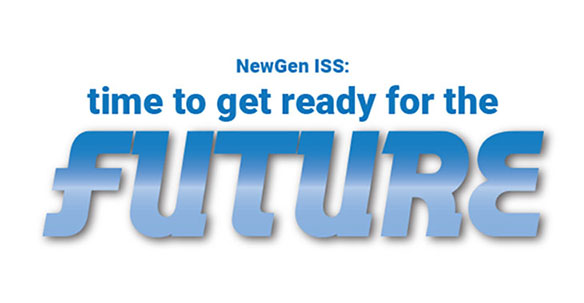
Mike Dunbar
[Editor’s note: This is the second part of a multi-part series on the International Air Transport Association (IATA) by CTP’s Quebec editor, Mike Dunbar, that takes a look at the initiatives and issues that the association is working on. This week, a look at the New Generation IATA Settlement System (or NewGen ISS).]
The travel trade has just a couple of months to get used to the idea of the New Generation IATA Settlement Systems (NewGen ISS) because a progressive wave roll-out is slated to start on March 1, with worldwide implementation scheduled for the end of 2019.
And all stakeholders had better get used to the idea because, unlike the New Distribution Capability (NDC) initiative, it’s compulsory, said IATA director general, Alexandre de Juniac, in an aside to journalists during the organization’s recent Global Media Day in Geneva.
Aleks Popovich, the man in charge of deploying the next evolution of the Bank Settlement Plan pointed out that the 46-year-old BSP currently operates in more than 140 markets and facilitates the annual distribution and settlement of $219 billion in funds between some 400 airlines and 38,000 travel agents.
And the senior VP financial and distribution services revealed that, for every $1 million received from retailers “all but $5 is settled on time.”
But things have changed since 1971 – cash is no longer king, OTA’s exist and paper tickets don’t – so NewGen ISS has been developed to transform the BSP to ensure it meets the current needs of both airlines and agents, stressed Popovich.
To achieve that, four key initiatives have been developed:
-
- A range of accreditation models to better fit agent profiles.
- A remittance holding capacity that debuts a maximum threshold for agents’ outstanding monies at risk pending remittance to BSP.
- A new pay-as-you-go e-wallet industry payment method dubbed IATA EasyPay.
- Global default insurance as an alternative financial security to bank guarantees.
In order to cater to differing retailer models the NewGen ISS initiative will offer three accreditation models:
-
- Golite is a simplified entry-level certification.
- Gostandard is based on today’s cash-based accreditation.
- Goglobal is a streamlined process aimed at multinational agents and travel management companies and valid for all markets.
Popovich explained that, by offering three levels of accreditation, agents will be able to choose the one that best fits their business model “and make sure they stay relevant in this rapidly evolving world.”
The new remittance holding capacity (RHC) will apply to all agents with access to a BSP cash facility. When an agency reaches its RHC, cash sales will be restricted until a remittance is received and the retailer again falls below the maximum threshold.
According to Popovich, RHC is part of a “prudent risk management framework.” He explained, “About $50 million disappears from this particular part of the distribution chain each year owing to fraud; an amount that at least doubles when other losses such as agent bankruptcy are taken into account.”
He noted that agents will be notified when they reach a certain percentage of their capacity “so as to be able to make applicable actions,” adding, “Importantly, the agent can continue issuing tickets using IATA EasyPay or the customer’s credit card as the form of payment.”
And he stressed, “The RHC levels are the outcome of a collaborative process involving airlines and travel agents to ensure that agents have the flexibility they need, while protecting airline ticket sales.”
EasyPay is a new voluntary pay-as-you-go option based on the e-wallet concept, which is similar in many respects to PayPal. It will be available to all accredited agents and will not count against RHC thresholds, while, for airlines, it offers a lower cost per transaction – currently pegged at $12 per $400 ticket – as well as faster settlement of funds.
Popovich explained that a global default insurance (GDI) policy, brokered by an Allianz Group subsidiary, is an optional, collateral-free form of financial security that is “a cost-effective and flexible alternative to bank guarantees.”
He stated, “Any travel agent may, on a voluntary basis, seek coverage under GDI for the corresponding amount of financial security required by IATA.”
And he added, “We believe GDI represents a cost-effective and flexible alternative to bank guarantees and other types of security, while for airlines it provides strong and reliable coverage with certainty of claims in the event of a default.”

